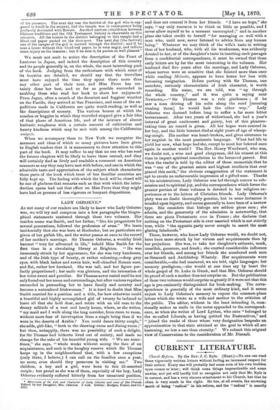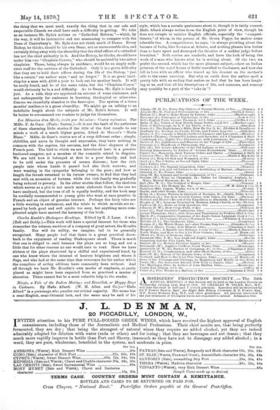CURRENT LITERATURE.
Church Reform. By the Rev. J. C. Ryle. (Hunt.)—No one can read these vigorously written letters without feeling an increased respect for their author. Every one will probably feel some corn of his own trodden upon sooner or later ; will think some things impracticable and some unwise, and yet will hardly fail to recognize not only that Mr. Ryle is in earnest, and has a very sincere attachment to his Church, but that he often is very mush in the right. He has, at all events, the crowning merit of being "radical" in his reform, and the " radical " is exactly
respectable Church we shall have such a difficulty in getting. We take as an instance Mr. Ryle's notions on "Cathedral Reform,"—which, by the way, it will be instructive and not nnamusing to compare with the Dean of Canterbury's. Mr. Ryle does not think much of Deans. Every Bishop, he thinks, should be his own Dean; not an unreasonable idea, and certainly doing away with the absurdity that the chief officer of a cathedral has not the chief authority in it. And the Bishop, he thinks, should have under him two "Chaplain-Canons," who should be assisted by two minor chaplains. These, being always in residence, would be an amply suffi- cient staff for the services of the Cathedral. Only it is a grave difficulty that they are to hold their offices during the life of the Bishop, "just like a curate," our author says, "and no longer." It is no great hard- ship for a man with £100 a year to look out for another berth. It will be easily found, and ho of the same value, but the " Chaplain-Canon " would obviously be in a sad difficulty. As to Deans, Mr. Ryle is hardly just. • As a rule, they are appointed on account of some eminence, and not nnfrequently for eminence in learning, theological or otherwise. Canons we cheerfully abandon to the destroyer. The system of a three months' residence is a gross absurdity. We might go on talking to an indefinite length about the subjects of Mr. Ryle's letters, It will be better to recommend our readers to judge for themselves.































 Previous page
Previous page